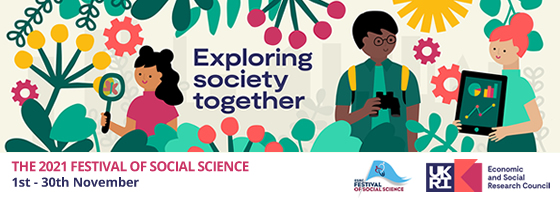The final ESRC event in our month-long programme was hosted by our Architecture team within the School of Science, Engineering and Environment, with presentations from Professor Hisham Elkadi and colleagues Dr Nourhan Heysham and Dr Maria Yioutani Iacovides.
The presenters encouraged interactive audience participation, with poll questions to participants to gauge their opinions on what we understand by ‘networks’ and the value of social capital networks, as well as thoughts on the contribution that SMEs can make to the UK’s carbon reduction target. Participants also took part in a Q&A after the presentations, which answered questions about the framework for social capital.
What was the event about?
Social capital has proven to have a positive impact on the sustainability of Small and Medium Enterprises (SMEs). The team presented their research outcomes on social capital utilising a case study from craft hand-made furniture industries abroad, with particular focus on the city of Damietta in Egypt. The team discussed how these outcomes were applicable in the UK craft cultural industry and focussed on the path from craft to industry production.
The event presented insights into how social capital could contribute to the resilience and sustainability of SMEs. Social capital (in the forms of trust, networks, norms) is a vital part of our personal and professional life and the team discussed how we can understand its value and what impact it has on individuals’ wealth and well-being, and the economic growth of communities, regions, and cities.

The event also touched upon the COP agenda, following the COP26 conference earlier this month, and debated the road to ‘net zero’ in the UK and the focus on sustainability across the world. The presenters discussed the importance of sustainability in terms of social, economic and environmental impact and, more broadly, the United Nations’ ‘Sustainable Development Goals’ (SDGs). This was again related back to the craft furniture industry, with the example of Damietta as a modern city which is full of furniture exhibition galleries and which produces high-quality products. Damietta is considered to be a resilient city with high social capital, recycling its materials through a circular economy, using environmentally friendly materials during production and therefore creating no waste.
The varied presentations gave food for thought as to how we can become more sustainable in our networks in the UK. The Architecture team are continuing to research into this very topical area and are happy to be contacted to discuss the issues further: Nourhan Heysham – n.h.abdelrahman2@salford.ac.uk; Maria Yioutani-Iacovides – m.yioutani-iacovides@salford.ac.uk and Hisham Elkadi – h.elkadi@salford.ac.uk.